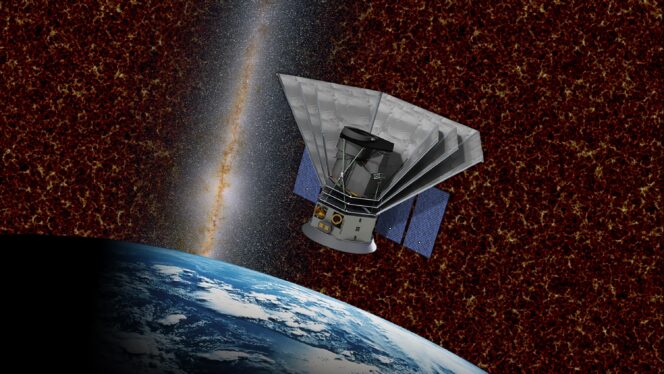NASA has selected Space Exploration Technologies Corporation (SpaceX) of Hawthorne, California, to provide launch services for the COSI (Compton Spectrometer and Imager) mission.
The firm-fixed-price contract has a value of approximately $69 million, which includes launch services and other mission related costs. The COSI mission currently is targeted to launch August 2027 on a SpaceX Falcon 9 rocket from Cape Canaveral Space Force Station.
This wide-field gamma-ray telescope will study energetic phenomena in the Milky Way and beyond, including the creation and destruction of matter and antimatter and the final stages of the lives of stars. NASA’s COSI mission will probe the origins of the Milky Way’s galactic positrons, uncover the sites of nucleosynthesis in our galaxy, perform studies of gamma-ray polarization, and find counterparts to multi-messenger sources. The compact Compton telescope combines improved sensitivity, spectral resolution, angular resolution, and sky coverage to facilitate groundbreaking science.
The mission is a collaboration between the University of California, Berkeley’s Space Sciences Laboratory, the University of California, San Diego, the Naval Research Laboratory, NASA’s Goddard Space Flight Center, and Northrop Grumman.
The COSI principal investigator-led project management team is located at the University of California, Berkeley. NASA’s Astrophysics Explorers Program at Goddard Space Flight Center in Greenbelt, Maryland, supports development of the project for the Astrophysics Division within NASA’s Science Mission Directorate. NASA’s Launch Services Program at the Kennedy Space Center in Florida is responsible for program management of the launch services.
For more information about COSI, visit:
https://science.nasa.gov/mission/cosi/
-end-
Tiernan Doyle
Headquarters, Washington
202-358-1600
tiernan.doyle@nasa.gov
Patti Bielling
Kennedy Space Center, Florida
321-501-7575
patricia.a.bielling@nasa.gov
https://www.nasa.gov/news-release/nasa-awards-launch-services-contract-for-space-telescope-mission/



